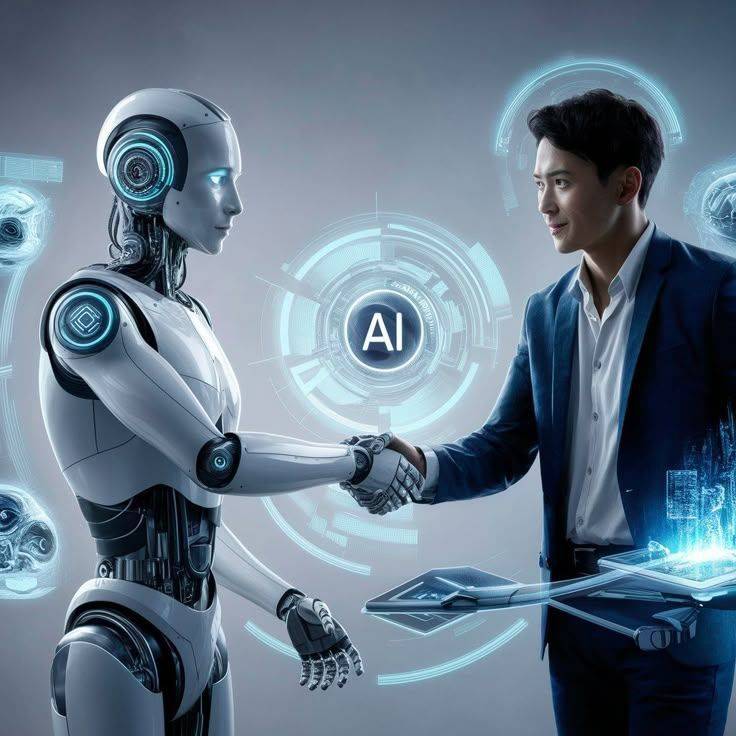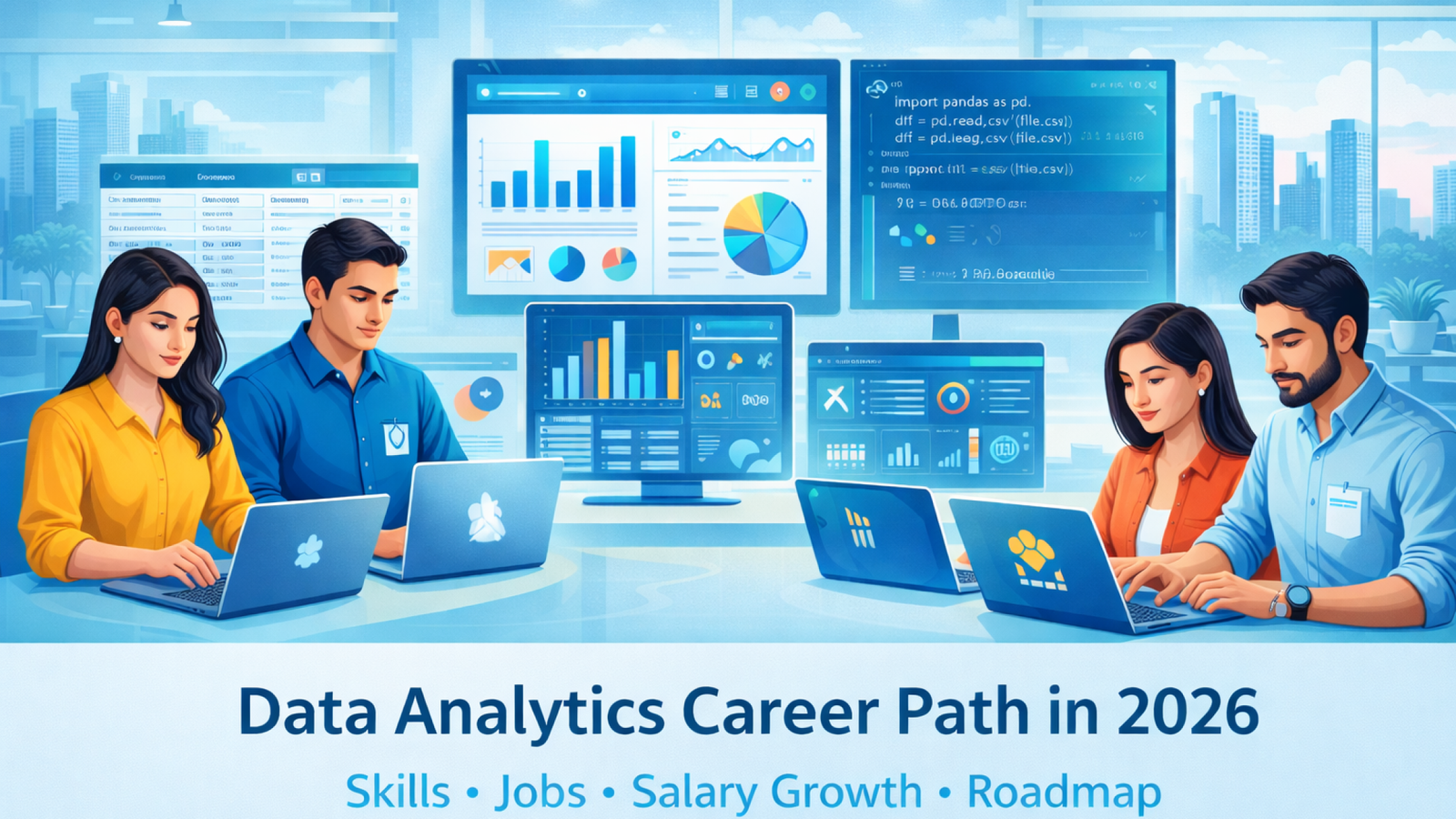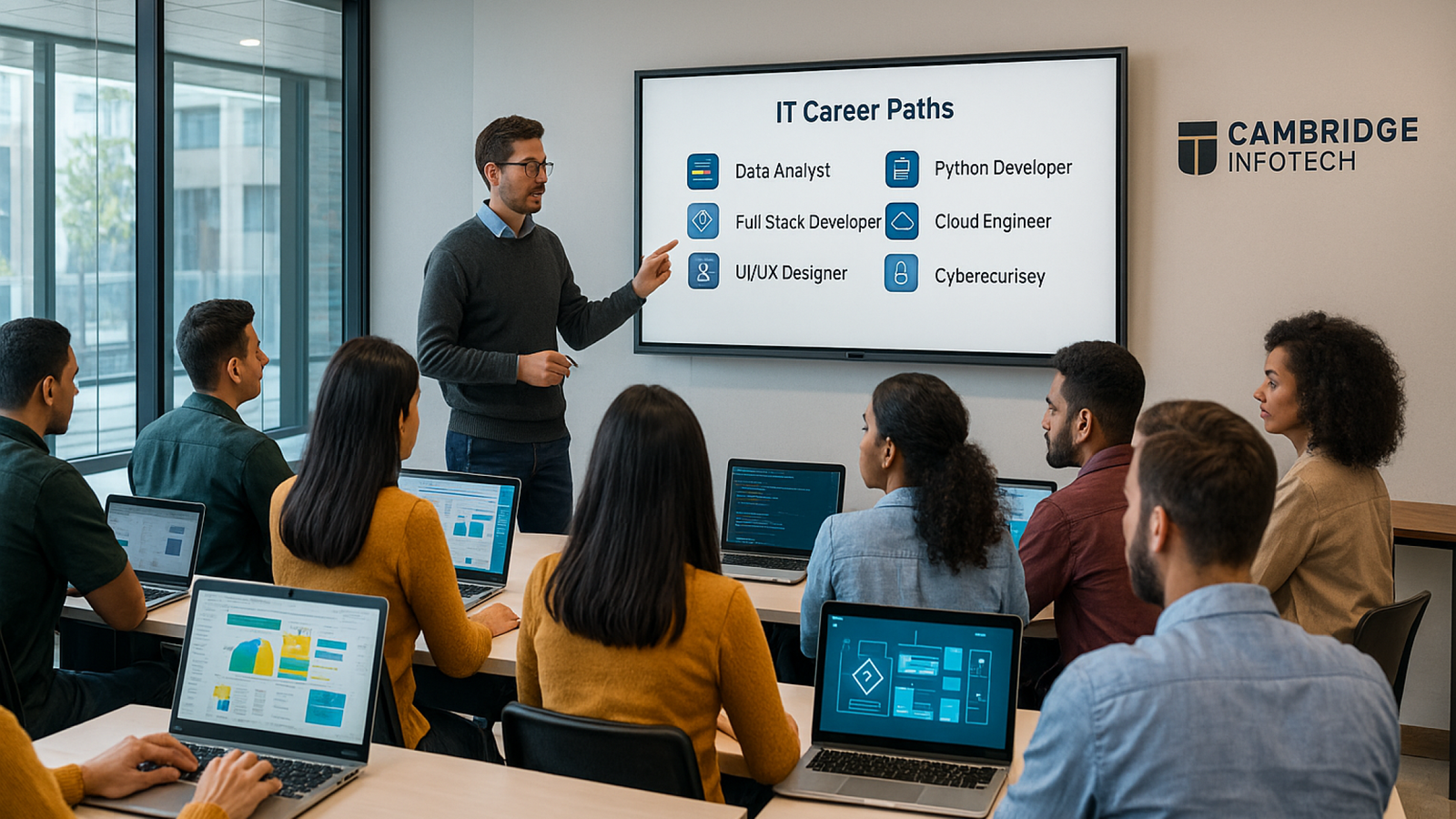How to Become an AI Engineer Complete Guide for 2025

Introduction
How to Become an AI Engineer is one of the most searched questions today, and for good reason. Artificial Intelligence (AI) is no longer a futuristic idea it’s already shaping industries, powering innovations, and creating some of the most lucrative career opportunities worldwide. From autonomous vehicles and healthcare diagnostics to personalized recommendations on platforms like Netflix and Amazon, AI is everywhere. Naturally, the demand for skilled AI engineers has surged, making this one of the fastest-growing and highest-paying tech careers of our time.
Who is an AI Engineer? Demystifying the Role
An AI Engineer is a professional who uses artificial intelligence and machine learning techniques to develop applications and systems that can help organizations increase efficiency, cut costs, and unlock new opportunities. They are the crucial bridge between theoretical data science and practical, deployable software.
It’s important to distinguish an AI Engineer from a Data Scientist. While there is overlap, the focus is different:
Data Scientist: Primarily focuses on analyzing data, building statistical models, and extracting insights. Their output is often a report, a dashboard, or a predictive model.
AI Engineer: Focuses on taking those models and integrating them into production-grade applications. They are responsible for building, deploying, and maintaining the infrastructure that allows AI to function at scale. They are software engineers first, with a specialized skillset in AI/ML.
Key responsibilities of an AI Engineer include:
Developing, programming, and training complex AI models.
Building and managing AI infrastructure and product development.
Conducting statistical analysis and interpreting results to guide business decisions.
Automating infrastructure for the data science team.
Collaborating with data scientists, data architects, and IT teams.
The Allure of AI: Career Prospects and Salary Outlook
Let’s address the question on everyone’s mind: is it worth it? The data resoundingly says yes.
1. Explosive Job Growth:
The U.S. Bureau of Labor Statistics predicts that computer and information research scientist (a category that includes AI roles) jobs will grow 21% from 2021 to 2031, which is much faster than the average for all occupations. LinkedIn consistently ranks AI Specialist and related roles among its top emerging jobs.
2. High Earning Potential:
AI engineering is one of the highest-paying careers in the tech industry today. Salaries vary based on experience, location, and company, but they are consistently impressive.
Entry-Level AI Engineer: Can expect to earn between $90,000 – $130,000 annually.
Mid-Level AI Engineer (2-5 years experience): Salaries typically range from $130,000 – $200,000.
Senior-Level AI Engineer (5+ years experience): Can command salaries from $200,000 to well over $300,000, especially when including stock options and bonuses at tech giants like Google, Meta, and Netflix.
These figures are not just for Silicon Valley. With the rise of remote work, companies worldwide are competing for this scarce talent.
The Essential Skillset: Your AI Engineer Toolkit
Becoming a proficient AI engineer requires a blend of foundational programming skills, mathematical understanding, and domain-specific knowledge. Here’s your toolkit:
1. Foundational Programming & Software Engineering
This is non-negotiable. You must be an excellent programmer.
Python: The undisputed king of AI and ML due to its simplicity and powerful libraries (NumPy, Pandas, Scikit-learn, TensorFlow, PyTorch).
R: Useful for statistical analysis and data visualization.
Software Engineering Principles: Proficiency in data structures, algorithms, version control (Git), and software development life cycle (SDLC) is critical for building scalable and maintainable systems.
2. The Bedrock of Mathematics and Statistics
AI is built on math. You don’t need a PhD, but a solid grasp is essential.
Linear Algebra: The core of many AI techniques. Understanding vectors, matrices, and tensor operations is crucial for working with datasets and deep learning.
Calculus: Understanding derivatives and gradients is key to how machines “learn” through optimization algorithms like Gradient Descent.
Statistics & Probability: Concepts like probability distributions, statistical significance, Bayes’ theorem, and regression analysis are fundamental for building and validating models.
3. Core AI/ML Concepts and Libraries
Machine Learning: Master both supervised (linear regression, logistic regression, support vector machines, decision trees, random forests) and unsupervised learning (clustering, PCA) techniques.
Deep Learning: Understand neural networks, convolutional neural networks (CNNs) for image data, and recurrent neural networks (RNNs) for sequence/time-series data.
Natural Language Processing (NLP): Techniques for working with text data (tokenization, embeddings, transformers like BERT).
Libraries: Hands-on experience with TensorFlow, Keras, PyTorch, and Scikit-learn is a must-have on any resume.
4. Big Data Technologies
AI models need vast amounts of data. You need to know how to handle it.
SQL is essential for querying databases.
Experience with big data frameworks like Apache Spark, Hadoop, or Kafka is highly valuable for processing large datasets across clusters.
5. Deployment and MLOps (The AI Engineer’s Superpower)
This is what separates theorists from engineers. MLOps (Machine Learning Operations) is the practice of deploying, monitoring, and maintaining ML models in production.
Cloud Platforms: Proficiency in AWS, Google Cloud Platform (GCP), or Microsoft Azure is critical. Know their AI-specific services (e.g., AWS SageMaker, GCP AI Platform, Azure ML).
Containerization: Docker is the standard for packaging applications and their dependencies.
Orchestration: Kubernetes is used for managing containerized applications at scale.
CI/CD Pipelines: Automating testing and deployment.
The Educational Pathway: Degrees, Certifications, and Self-Learning
There are multiple roads to Rome. Here are the most common paths to becoming an AI Engineer.
1. The Traditional Academic Route (Bachelor’s/Master’s/PhD)
Bachelor’s Degree: A degree in Computer Science, Data Science, Mathematics, or Statistics provides the strongest foundation. Focus on relevant coursework and projects.
Master’s Degree: A Master’s in Computer Science with a specialization in AI or Machine Learning is highly valued and often considered a standard for many top-tier roles. It allows for deeper theoretical understanding.
PhD: Typically required for highly research-oriented roles in labs or for pushing the boundaries of AI theory.
2. The Bootcamp and Certification Path
For career-changers or those who need a more focused, practical, and faster route, intensive bootcamps and professional certifications are excellent options. This is where Cambridge Infotech excels.
Programs like ours are designed to immerse you in the practical, hands-on skills that employers are desperately looking for, often in a matter of months, not years. A reputable certification from an industry-recognized institution can validate your skills and get you past HR filters.
3. The Self-Taught Route
This path requires immense discipline but is entirely possible thanks to the wealth of online resources.
Online Courses: Platforms like Coursera, edX, and Udacity offer excellent nanodegrees and specializations from top universities and companies.
Hands-On Practice: Websites like Kaggle are indispensable for practicing on real-world datasets and learning from a community of experts.
The Verdict: A combination often works best. A strong foundational degree supplemented with a specialized bootcamp or certification for the latest practical skills is a powerful combination.
Step-by-Step Guide: How to Become an AI Engineer in 2025
Lay the Foundation: Solidify your programming skills (Python!) and core mathematical concepts. Take introductory courses on linear algebra, calculus, and statistics.
Learn Core ML Concepts: Enroll in a structured program (like Andrew Ng’s legendary Machine Learning course on Coursera) to understand the fundamentals of machine learning.
Dive into Deep Learning and Specialize: Choose a path that interests you—Computer Vision, NLP, etc.—and dive deeper. Build projects using TensorFlow or PyTorch.
Master MLOps and Deployment: This is your differentiator. Learn how to use Docker, a cloud platform (get a free tier account), and deploy a simple model as an API. This is a core part of the curriculum at Cambridge Infotech.
Build a Killer Portfolio: Theory is nothing without practice. Build and, crucially, deploy your own projects.
Idea: A sentiment analysis tool for Twitter.
Idea: An image classifier using CNN.
Idea: A recommendation system for movies or products.
Document everything on GitHub. Write clean code and include a README explaining your project.
Network and Engage: Join AI communities online (like on Reddit or LinkedIn). Attend local meetups or virtual webinars. Contribute to open-source projects.
Prepare for the Interview: AI interviews are rigorous. Be prepared for:
Coding interviews on data structures and algorithms.
ML conceptual interviews to test your theoretical understanding.
System design interviews focused on designing scalable ML systems.
Portfolio deep dives where you walk them through your projects.
Why Choose Cambridge Infotech to Launch Your AI Career?
The path we’ve outlined is clear, but navigating it alone is challenging. You need a guide—a partner with industry expertise and a proven track record. That’s where we come in.
At Cambridge Infotech, our AI Engineer Career Track program is meticulously designed to transform you from a beginner or intermediate programmer into a job-ready AI Engineer. We don’t just teach theory; we immerse you in the practical, in-demand skills that top companies are hiring for right now.
What sets our program apart?
Industry-Vetted Curriculum: Our course is co-designed with AI leaders from the industry to ensure you learn exactly what’s needed on the job, from advanced model building to MLOps and cloud deployment.
Project-Based Learning: You won’t just watch videos. You will build a portfolio of 10+ real-world projects that solve actual business problems, giving you tangible proof of your skills.
Expert Mentorship: Learn from seasoned AI engineers who provide 1-on-1 mentorship, code reviews, and career guidance.
Career Support, Not Just Training: Our commitment doesn’t end at graduation. We provide extensive career support, including resume workshops, mock interviews, and direct introductions to our network of hiring partners.
Focus on the “Engineering”: We place a heavy emphasis on the often-overlooked engineering side—deployment, scalability, and maintenance—making you a more complete and valuable engineer.
Conclusion
The path to becoming an AI engineer is clearly no easy feat. It demands a blend of analytical rigor, programming proficiency, and a visionary mindset. It requires dedication to continuous learning in a field that evolves at breakneck speed. We’ve laid out the blueprint: the essential skills in mathematics, programming, and MLOps; the educational paths from degrees to bootcamps; and the actionable steps to build a portfolio that gets you hired.
Call to Action
The demand for AI engineers is growing every single day—and the best time to start is now. Whether you’re a student, fresher, or working professional, the right training and guidance can help you build a future-proof career in Artificial Intelligence. Don’t just read about how to become an AI engineer—start your transformation today!
Enroll now at Cambridge Infotech and take the first step toward becoming a highly paid AI engineer in 2025 and beyond.
Call us now at – 099024 61116
Visit our Website: cambridgeinfotech.io/
Check Out Related Blogs
Top Digital Skills to Learn for Career Growth – High Demand in 2025–2030
How to Build a Career in Ethical Hacking – Become a Certified Ethical Hacker
How to Become a Cloud Security Engineer Career Growth, Demand & Salary Insights








